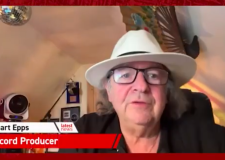MUSIC: Rokia Traoré
Jeff Hemmings chats with Malian star Rokia Traoré

What is it about Mali, a country that has been suffering conflict for the last few years as the Government battles with Tuareg separatists and Islamic fundamentalists? At one point, parts of Mali were forbidden to play music as extremists temporarily took a hold.
While the situation remains fluid, Malian musicians continue to dazzle and delight: Salif Keita, Toumani Diamante, Ali Farka Touré, Oumou Sangaré, Afel Bocoum, Tinariwen, Tamikrest, Amadou & Mariam… Add to that the amazing Rokia Traoré, daughter of a diplomatic who found herself in Brussels for part of her upbringing and who currently divides her time between there and Mali.
“I studied here [Brussels] and spent part of my childhood here,” says Traore. “I studied social studies, but I left in my third year; I had to go back to Mali. Sometimes I think of finishing my studies, but I am so busy with interesting things, I don’t know! The life of everyday is probably the biggest and hardest school; there are always many interesting things to learn!”
PJ Harvey’s long time collaborator and producer John Parrish produced her recent album Beautiful Africa, an album that moves away from the acoustic and blues influences that infuse her previous work, but which is still a distinctively African record thanks to the use of the n’goni as well as western guitars.
“The idea of working with him came to me because I wanted to collaborate with someone who could bring me what I couldn’t, in terms of rock ’n’ roll, because it’s not my culture at all. It was a great experience, I didn’t have to worry about preserving what I did. John is firstly a great artist, and a good person, and also he’s a great human person.”
The conflict in Mali, while now largely contained, is a reflection of the fragility that much of Africa operates under, and represents a strong theme throughout the album. “The conflict started about two years ago, when we started seeing the direct effects of what had been going on for years. Now, things are getting better, re-building, but the situation in the north of the country is still confusing and fragile.”
But Traore remains optimistic: “We had these amazingly well organised elections. The population decided who won, the runner up was very gracious, and the results were upheld. So, I continue to be a realistic but optimistic. I know how fragile things are in Africa, but there are so many opportunities. I keep trusting in Africa and Africans, and I am very hopeful.
We are becoming more self-confident – yes, there are those who want to leave and yearn for a different life, maybe because of all the things they can see on the TV and internet which presents other places as a kind of paradise, when they are not. But those who are self-confident, especially those who are doing well at school, can read and write and speak other languages, this is the most important thing, trusting in those people who can do things for Africa, and to shake off the complex of inferiority.”
Rokia Traoré, Corn Exchange, Brighton Dome, Wed 6 November, 8pm, £17.50





















